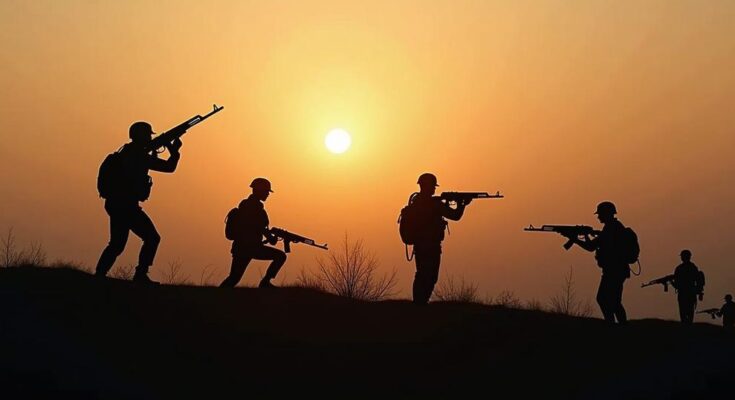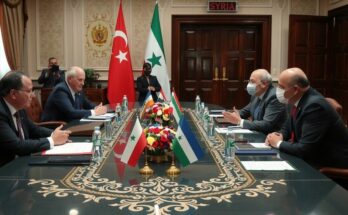Tensions in the Middle East surged following Iran’s ballistic missile assault on Israel, with Israel conducting significant military actions in Lebanon against Hezbollah. The conflict has led to considerable casualties on both sides, with the threat of further escalations raising alarms in the international community. Prime Minister Netanyahu’s firm stance against Iran, coupled with Hezbollah’s assertion of their operational capacity, points towards a dangerous and evolving conflict.
Tensions in the Middle East intensified following Iran’s unprecedented ballistic missile attack on Israel, with fears of an escalating regional conflict at the forefront. Iranian officials are preparing for a potential Israeli retaliation to this aggression, which has already marked a grim transformation of the conflict landscape. Amidst these developments, the Israeli military has experienced notable losses during its ongoing ground invasion in Lebanon targeting Hezbollah militants. On the frontline, eight Israeli soldiers were reported killed in confrontations with Hezbollah forces, indicating a significant shift in the dynamics of engagement. Prime Minister Benjamin Netanyahu has expressed his condolences, framing the conflict as part of a broader struggle against what he describes as Iran’s axis of evil, while Hezbollah maintains its readiness to continue its resistance, citing its ability to withstand ongoing assaults on its leadership. With nearly 2,000 fatalities reported over the past ten days—many of whom were civilians affected by the bombardments—both Israeli and Hezbollah forces continue to escalate their military strategies in this volatile scenario. The retaliatory airstrikes by Israel in Lebanon have prompted heavy civilian casualties and widespread destruction, indicative of the conflict’s gravitation towards a humanitarian crisis. In contrast, Iranian missile strikes aimed at Israel, while significant in scale, reportedly did not achieve their intended targets, leading some experts to suggest Israel may respond by engaging economically with Iran, instead of targeting its nuclear facilities. Reports indicate the United States government is cautiously encouraging Israel to calibrate its military response to avoid provoking further missile assaults from Iran. The situation remains precarious as both sides prepare for the next phases of their conflict, ultimately marked by an urgent need for diplomatic intervention in one of the world’s most volatile regions.
The ongoing conflict in the Middle East has drawn attention to the longstanding tensions between Israel and Iran, particularly in light of Iran’s support for militant groups such as Hezbollah. The escalation follows a series of military engagements that highlight the fragile balance of power. The recent missile barrage from Iran marked the first time such a significant strike was directed at Israel, raising alarms over potential regional ramifications. In response, Israel has intensified military operations in Lebanon, a strategy that has historical precedents but carries significant risks, particularly involving civilian safety and the broader geopolitical landscape.
In summary, the current dynamics between Israel, Iran, and Hezbollah underscore a critical juncture in Middle Eastern affairs, with the potential for further escalation looming large. As both sides mobilize for continued confrontation, the humanitarian impact and the prospect for international diplomatic solutions remain vital considerations for global stakeholders. The imperative for restraint and focused dialogue is clearer than ever as both nations navigate a path fraught with peril.
Original Source: www.pbs.org




